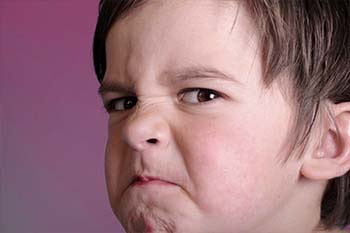BEHAVIOURAL DISORDERS are group of disorders which includes deviation from normal behaviour to such an extent that it makes your life difficult. There is no criterion that suggests 'normal' behaviour. But if behaviour of any person is such that it is socially and culturally not acceptable and is creating nuisance in personal and social sphere; it is considered as Behavioural Disorders.
Types of Behavioural Disorders:
Oppositional Defiant Disorder (ODD):
- It is very commonly seen in kids usually who have not reached teenage yet.
- Child may get annoyed, angry, irritable
- Such child may challenge even authoritative people and may refuse to obey every one
- They try to annoy others which they find amusing
- Refuse to take responsibility of their actions and blame others frequently
- Such behaviour is common in kids but if they are persistent and disrupt routine life, they are ODD. Unless treated, it can aggravate to Conduct Disorder.
Conduct Disorder (CD):
- Here, the behaviour is more intolerant and delinquent
- It is more common in boys
- There is complete lack of respect and empathy for others
- Does not care to listen to authorities and parents
- Drug abuse and substance abuse is very common
- Severe aggression which may include hatred towards animals
- Bullying and physical or/ and sexual abuse are also marked
- Child may plan to or actually run away from home
- Get into physical fights which may include weapons
- Negative behaviours like lying, stealing, vandalism, breaking into other's property, causing deliberate harm to others is commonly seen
- Suicidal thoughts
Attention Deficit Hyperactivity Disorder (ADHD):
- It affects nearly up to 5% of kids and is three times more common in boys
- There is over or hyperactivity with constant restlessness and fidgeting
- There is inattention, difficulty in concentration, unable to focus and running from one task to other without completing one.
- Impulsive nature with short temper, prone to accident.
Emotional Behavioural Disorder (EBD):
- Controlling over one's emotions becomes difficult
- Unhappy feeling with or without depression
- Fear and anxiety related to different spheres of life
- Difficulty in learning but not due to intellectual, sensory or health reasons
- Inappropriate behaviour
Intermittent Explosive Disorder: Unplanned, repeated anger & aggression outburst
Kleptomania:
- Sudden urge or impulse to steal or shop lift items
- This behaviour can land person in serious trouble
Pyromania: Irresistible desire to set things on fire
Anxiety Disorders:
- Extreme anxiety and fear which is out of proportion & interferes with daily life
- It includes Post traumatic Stress Disorder, Obsessive compulsive Disorder, Generalized anxiety Disorder and Panic Disorder.















